يحاول ذهب - حر
Euro NCAP Vision 2030 document released
1st December 2022
|Autocar Professional
The release of the Vision 2030 establishes the key focus areas for the European new vehicle market - for both existing automotive industry stakeholders and also new industry entrants.
-
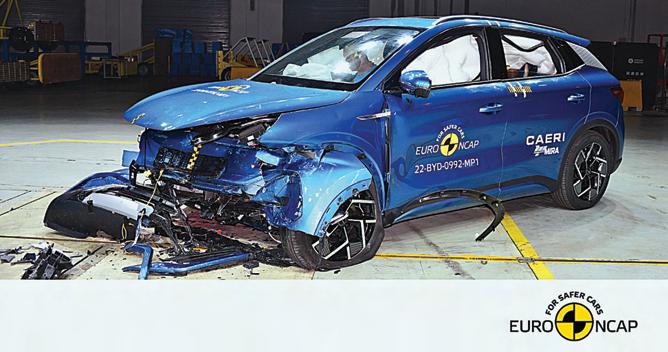
Reflecting the technology shift to encourage assisted and automated driving technologies, the four key areas of Euro New Car Assessment Programme(NCAP) - in place since 2009-will be adjusted to four distinct phases of a potential crash event: Safe Driving; Crash Avoidance; Crash Protection; and Post-Crash Safety. This change will take effect from 2026, with Euro NCAP moving to a three-year protocol update cycle.
Euro NCAP will be phasing in virtual testing, improving testing for vulnerable road user protection, and introducing rating incentives for a range of driver monitoring systems.
Key additions to the Euro NCAP programme, looking forward to 2030 also include: Testing and assessment of Assisted and Automated driver support systems.
● Assessment of technology that monitors driver impairment and cognitive distraction.
● Requirements to further improve the real-world efficacy of speed assistance technology.
● Active safety tests which more closely simulate real road environments and examine human-machine interaction (HMI) design, ensuring more robust and efficient driver assistant systems.
● Testing and assessment of safety functions enabled by V2V, V21 and V2X communication.
هذه القصة من طبعة 1st December 2022 من Autocar Professional.
اشترك في Magzter GOLD للوصول إلى آلاف القصص المتميزة المنسقة، وأكثر من 9000 مجلة وصحيفة.
هل أنت مشترك بالفعل؟ تسجيل الدخول
المزيد من القصص من Autocar Professional
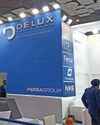
Autocar Professional
Spain's Fersa Group invests in India-based Delux Bearings
Besides theRs100 croreinvestment, the Indian company gets access toadvanced technologies and bearings with arange of applications that willhelpinits global growth strategy, writes Manobhava Baruah.
2 mins
15th January 2023
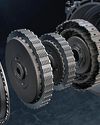
Autocar Professional
Tata Autocomp to open compact dual-clutch transmission plant
Amidthe country’s growing need for personal mobility with easy manoeuvrability, comes the demand for vehicles with automatic transmission. Tata AutoCompisready tomovein writes Shruti Mishra.
3 mins
15th January 2023

Autocar Professional
Pankaj Munjal-backed Hero Motors raises equity from GEF Cap
The company willinvest Rs1,500 crore over thenextthree years andit expects 60 percent ofits turnover to come fromelectric vehicle parts. Itaims to becomea Global EV Solutions Company from India
2 mins
15th January 2023
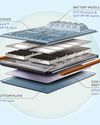
Autocar Professional
New age thermoplastics for next-generation EV batteries
Saudi-based global materials major SABIChas developed cutting edgein fire-resistant polymers and flame-retardant materials that comply with various EV battery safety standards across the world.
4 mins
15th January 2023
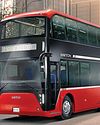
Autocar Professional
Switch Mobility to meet growing e-bus demand with fresh capex
Oncourse for abillion-dollar business, the company is exploringa possibility of operating satellite factories across the country to serve different geographies, write ShahkarAbidi and Ketan Thakkar.
4 mins
15th January 2023
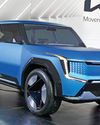
Autocar Professional
Kia India to invest Rs 2,000 crore in EVS, to introduce new e-RV in 2025
New investmentto drive R&D, infrastructure development and manufacturing capabilities. The company willlocally produce EVsin India with possibility of exports as well, writes Mayank Dhingra.
2 mins
15th January 2023

Autocar Professional
"The government has given enough time for indigenisation but the industry has not taken it seriously"
Amitabh Saran, Founder and CEO, Altigreen, shares his views on problems inthe EV industry and battery localisation solutions with Amit Vijay M.
3 mins
15th January 2023
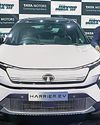
Autocar Professional
TATA MOTORS SEES ONE INTWO CARS SOLDAS EVS BY 2030
The company aims to offer wider choices withnew EVs that may straddle a pricebracket of Rs20to 40lakhinthe coming years, writes Ketan Thakkar.
2 mins
15th January 2023

Autocar Professional
MG Motor India in expansion drive, to invest $100 million
The investment willbe usedtoramp up existing production capacity from1.2to1.4-15lakh units per annum atthe automaker's Halol plantin Gujarat, writes Ketan Thakkar.
2 mins
15th January 2023

Autocar Professional
"Technology and its multiplier effect are driving business transformations and customer experiences"
Technical Centre India is one of Continental’s largest research and development centres in the world, andasa Centre of Competence’ it also develops customised products for the BRIC countries.
9 mins
15th January 2023
Translate
Change font size

